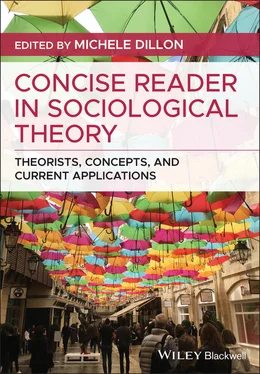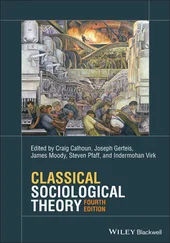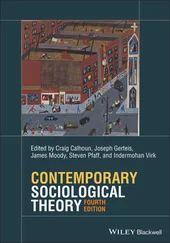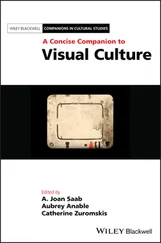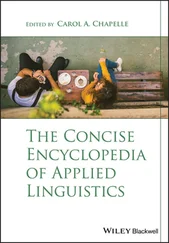But when society is disturbed by some painful crisis or by beneficent but abrupt transitions, it is momentarily incapable of exercising this influence; thence come the sudden rises in the curve of suicides which we have pointed out above.
In the case of economic disasters, indeed, something like a declassification occurs which suddenly casts certain individuals into a lower state than their previous one. Then they must reduce their requirements, restrain their needs, learn greater self‐control. All the advantages of social influence are lost so far as they are concerned; their moral education has to be recommenced. But society cannot adjust them instantaneously to this new life and teach them to practice the increased self‐repression to which they are unaccustomed. So they are not adjusted to the condition forced on them, and its very prospect is intolerable; hence the suffering which detaches them from a reduced existence even before they have made trial of it.
It is the same if the source of the crisis is an abrupt growth of power and wealth. Then, truly, as the conditions of life are changed, the standard according to which needs were regulated can no longer remain the same; for it varies with social resources, since it largely determines the share of each class of producers. The scale is upset; but a new scale cannot be immediately improvised. Time is required for the public conscience to reclassify men and things. So long as the social forces thus freed have not regained equilibrium, their respective values are unknown and so all regulation is lacking for a time. The limits are unknown between the possible and the impossible, what is just and what is unjust, legitimate claims and hopes and those which are immoderate. Consequently, there is no restraint upon aspirations. If the disturbance is profound, it affects even the principles controlling the distribution of men among various occupations. Since the relations between various parts of society are necessarily modified, the ideas expressing these relations must change. Some particular class especially favored by the crisis is no longer resigned to its former lot, and, on the other hand, the example of its greater good fortune arouses all sorts of jealousy below and about it. Appetites, not being controlled by a public opinion become disoriented, no longer recognize the limits proper to them. Besides, they are at the same time seized by a sort of natural erethism simply by the greater intensity of public life. With increased prosperity desires increase. At the very moment when traditional rules have lost their authority, the richer prize offered these appetites stimulates them and makes them more exigent and impatient of control. The state of de‐regulation or anomy is thus further heightened by passions being less disciplined, precisely when they need more disciplining.
But then their very demands make fulfillment impossible. Over‐weening ambition always exceeds the results obtained, great as they may be, since there is no warning to pause here. Nothing gives satisfaction and all this agitation is uninterruptedly maintained without appeasement. Above all, since this race for an unattainable goal can give no other pleasure but that of the race itself, if it is one, once it is interrupted the participants are left empty‐handed. At the same time the struggle grows more violent and painful, both from being less controlled and because competition is greater. All classes contend among themselves because no established classification any longer exists. Effort grows, just when it becomes less productive. How could the desire to live not be weakened under such conditions?
This explanation is confirmed by the remarkable immunity of poor countries. Poverty protects against suicide because it is a restraint in itself. No matter how one acts, desires have to depend upon resources to some extent; actual possessions are partly the criterion of those aspired to. So the less one has the less he is tempted to extend the range of his needs indefinitely. Lack of power, compelling moderation, accustoms men to it, while nothing excites envy if no one has superfluity. Wealth, on the other hand, by the power it bestows, deceives us into believing that we depend on ourselves only. Reducing the resistance we encounter from objects, it suggests the possibility of unlimited success against them. The less limited one feels, the more intolerable all limitation appears. Not without reason, therefore, have so many religions dwelt on the advantages and moral value of poverty. It is actually the best school for teaching self‐restraint. Forcing us to constant self‐discipline, it prepares us to accept collective discipline with equanimity, while wealth, exalting the individual, may always arouse the spirit of rebellion which is the very source of immorality. This, of course, is no reason why humanity should not improve its material condition. But though the moral danger involved in every growth of prosperity is not irremediable, it should not be forgotten.
1 1Moreover, this is not to say that all constraint is normal… .
2 2This close affinity of life and structure, organ and function, can be readily established in sociology because there exists between these two extremes a whole series of intermediate stages, immediately observable, which reveal the link between them. Biology lacks this methodological resource. But one may believe legitimately that sociological inductions on this subject are applicable to biology and that, in organisms as in societies, between these two categories of facts only differences in degree exist.
3 3J. Darmester, Les Propheˋtes d’Israël (Paris, 1982). p9.
4 4It is in practice always the common concept and the common term which are the point of departure. Among the things that in a confused fashion this term denotes, we seek to discover whether any exist which present common external characteristics. If there are any, and if the concept formed by grouping the facts brought together in this way coincides, if not entirely (which is rare) but at least for the most part, with the common concept, it will be possible to continue to designate the former by the same common term, retaining in the science the expression used in everyday parlance. But if the difference is too considerable, if the common notion mixes up a number of different notions, the creation of new and special terms become a necessity.
5 1We say nothing of the ideal protraction of life involved in the belief in immortality of the soul, for (1) this cannot explain why the family or attachment to political society preserves us from suicide; and (2) it is not even this belief which forms religion’s prophylactic influence, as we have shown above.
Конец ознакомительного фрагмента.
Текст предоставлен ООО «ЛитРес».
Прочитайте эту книгу целиком, купив полную легальную версию на ЛитРес.
Безопасно оплатить книгу можно банковской картой Visa, MasterCard, Maestro, со счета мобильного телефона, с платежного терминала, в салоне МТС или Связной, через PayPal, WebMoney, Яндекс.Деньги, QIWI Кошелек, бонусными картами или другим удобным Вам способом.
